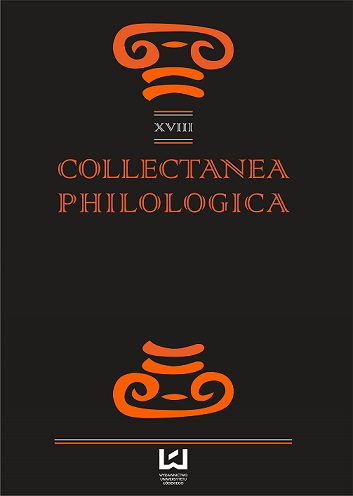„A z pamięci rodzi się sumienie…” Prometeusz Alberta Camusa i Zbigniewa Herberta
DOI:
https://doi.org/10.18778/1733-0319.18.08Słowa kluczowe:
existentialism, Polish literature, Promethean myth reception, literary parallels, human conscienceAbstrakt
The ancient Greek tradition talking about the relationship between man and the world so often, has been becoming for ages the basis for the efforts of explanation of man’s place in the universe. Such an effort is visible in the literary works of Zbigniew Herbert and Albert Camus. The purpose of that sketch is to demonstrate the Promethean myth reception in the works of both writers in a way that provokes thoughts about literary parallels that unites those two writers. In Prometheus, asking about the human conscience, memory and solidarity, as in Camus, as well as in Herbert, the author, Joanna Roś, sees some kind of a symbol that would connects „parallel lifes” of Zbigniew Herbert and Albert Camus.Pobrania
Opublikowane
2015-01-01
Jak cytować
Roś, J. (2015). „A z pamięci rodzi się sumienie…” Prometeusz Alberta Camusa i Zbigniewa Herberta. Collectanea Philologica, 18, 91–99. https://doi.org/10.18778/1733-0319.18.08
Numer
Dział
Articles
Licencja

Utwór dostępny jest na licencji Creative Commons Uznanie autorstwa – Użycie niekomercyjne – Bez utworów zależnych 4.0 Międzynarodowe.












